Harvard University, the prestigious school of many American presidents and Nobel prize winners, turns out to be a foodie, too!
During the 2019 Year of the Pig Spring Festival, the Good Food Fund and its seven chefs co-created the Spring Festival dinner with five top universities in the United States, including Yale, Harvard, and the Culinary Institute of America. This "Leads the Future" New Year's menu promoted the international communication of sustainable diets. This is the first time that Chinese chefs toured the world's top schools.
This is the fourth chapter of the New Year Feast Tour: Harvard University.

The third stop of the New Year Feast Trip came to the world-famous Harvard University. This time, Good Food Fund Delegations had unveiled the unknown but exciting stories between Harvard and food for the first time. Let's read ahead and uncover the secret together!
During the two-day stay at Harvard, Good Food Chefs and Harvard's culinary team jointly presented the "New Year Feast.” The Good Food Delegation also had a conversation with professors from the Department of Nutrition at Harvard University and learned about its practical experience in promoting sustainable development.
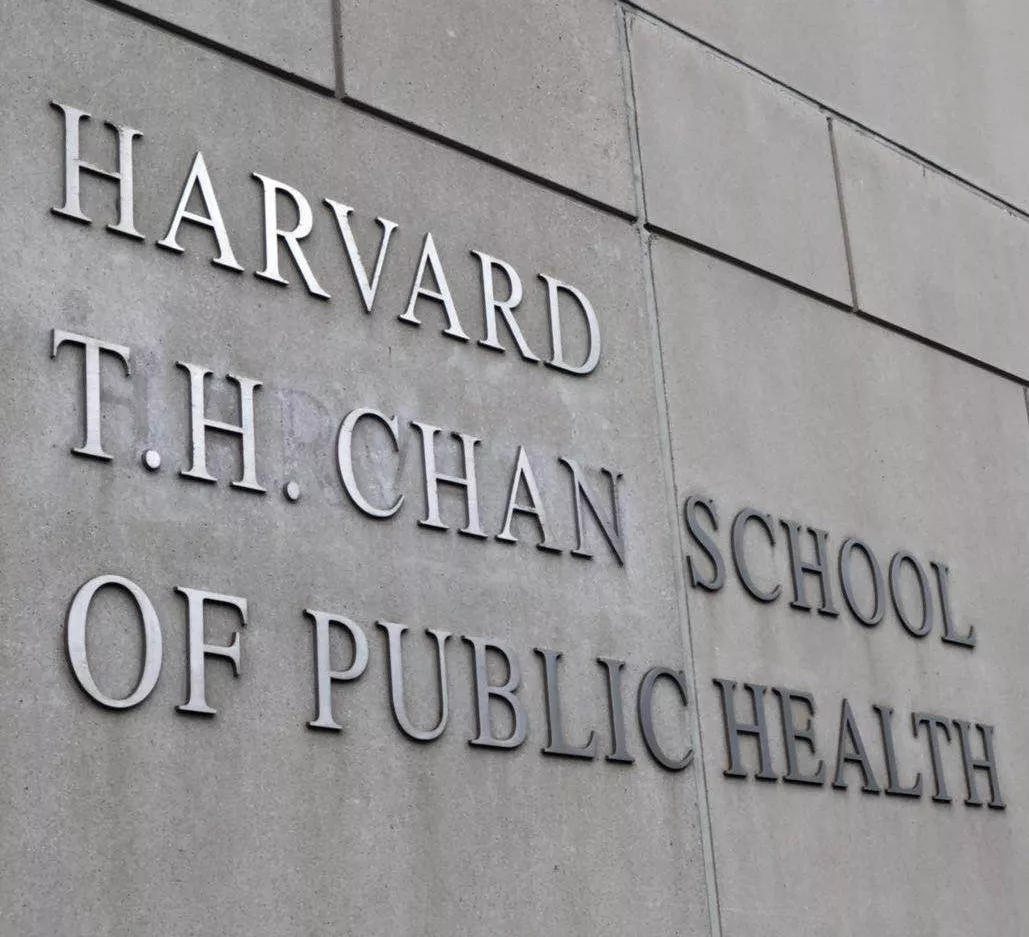
Note: T.H. Chen School of Public Health, Harvard University
On February 7, we first came to Harvard University T.H. Chen School of Public Health to talk with Professor Frank Hu, the head of the Department of Nutrition, and other researchers. The Department of Nutrition at Harvard University has had three Deans and has a history of more than 70 years which is the longest among all American universities. Among them, Professor Walter Willett, the last department head, is the co-chair of this year's EAT-Lancet Report. The EAT-Lancet Commission proposed the world's first food health standard at the beginning of this year. The release of this report is of historical significance. The first time the world's authoritative experts in nutrition formally advocated a healthy, sustainable diet.


Note: The EAT-Lancet Commission Summary Report
"A substantial dietary structural change is needed to realize a healthy diet transformation by 2050. This transformation includes more than doubling healthy foods such as fruits, vegetables, beans, and nuts, while the global consumption of less healthy foods such as sugar and red meat reduced by more than half. The dietary structure rich in plant-based ingredients and less animal-based ingredients can improve health and bring benefits to the environment. "
——Professor Walter Willett
Professor Frank Hu, the department's current head, shared with us the efforts and experience of Harvard in encouraging students to have a sustainable diet. "We are not forcing anyone to have more plant-based diets, but we are working with the Department of Nutrition just to tell everyone about the health benefits of plant-based diets and their positive significance for the environment. We believe that Harvard students are smart enough to find that the self-evident truth. Besides, Harvard dining service also provides cleaning services to reduce the use of disposable cups." The professor said that these initiatives are based on the most authoritative scientific research. "Of course, plant-based diets may not necessarily be healthy. We still need to pay attention to issues such as sugar control." When talking about reducing sugar intake, the professor mentioned that Mexico and California, and other regions have begun to tax high-sugar drinks. He believes this is a win-win action.
"Of course, the proper plant-based diets can be very healthy. The obesity rate in China has now reached 20%, while Japan has only 4% (because their diet is mostly plant-based and they exercise more). Worse, the obesity rate in the United States has reached a disastrous 40%. As we all know, obesity is associated with many diseases such as cardiovascular disease and diabetes, so it is one of the chronic diseases that humans cannot ignore." The professor agrees that plant-based diets can help reduce obesity.
The latest research result shared by a Chinese researcher in the Department of Nutritional Science shows that in the ranking of the dietary quality of 190 countries and regions in the world, the United States ranks 94, while China ranks 130. Improving dietary quality is vital to human health. Merely changing the dietary structure to an average level can reduce one-fourth of the world's deaths. Each year, about 6 million men and 5 million women worldwide lose their lives due to low-quality diets, which could have been avoided initially.
Therefore, based on the most authoritative scientific evidence, promoting a plant-based lifestyle is one of the most important ways to improve individual and environmental health.
As the world's top university, Harvard University continues to lead sustainable development. The Harvard Office for Sustainability is responsible for promoting Harvard's sustainable development work. Their priority is to encourage sustainable practices on campus. They also communicate with companies, including Google, on sustainability issues.
While promoting plant-based diets and formulating new standards for food, they also pay attention to animal welfare. They hope to improve animal welfare by reducing the proportion of animal protein consumption.
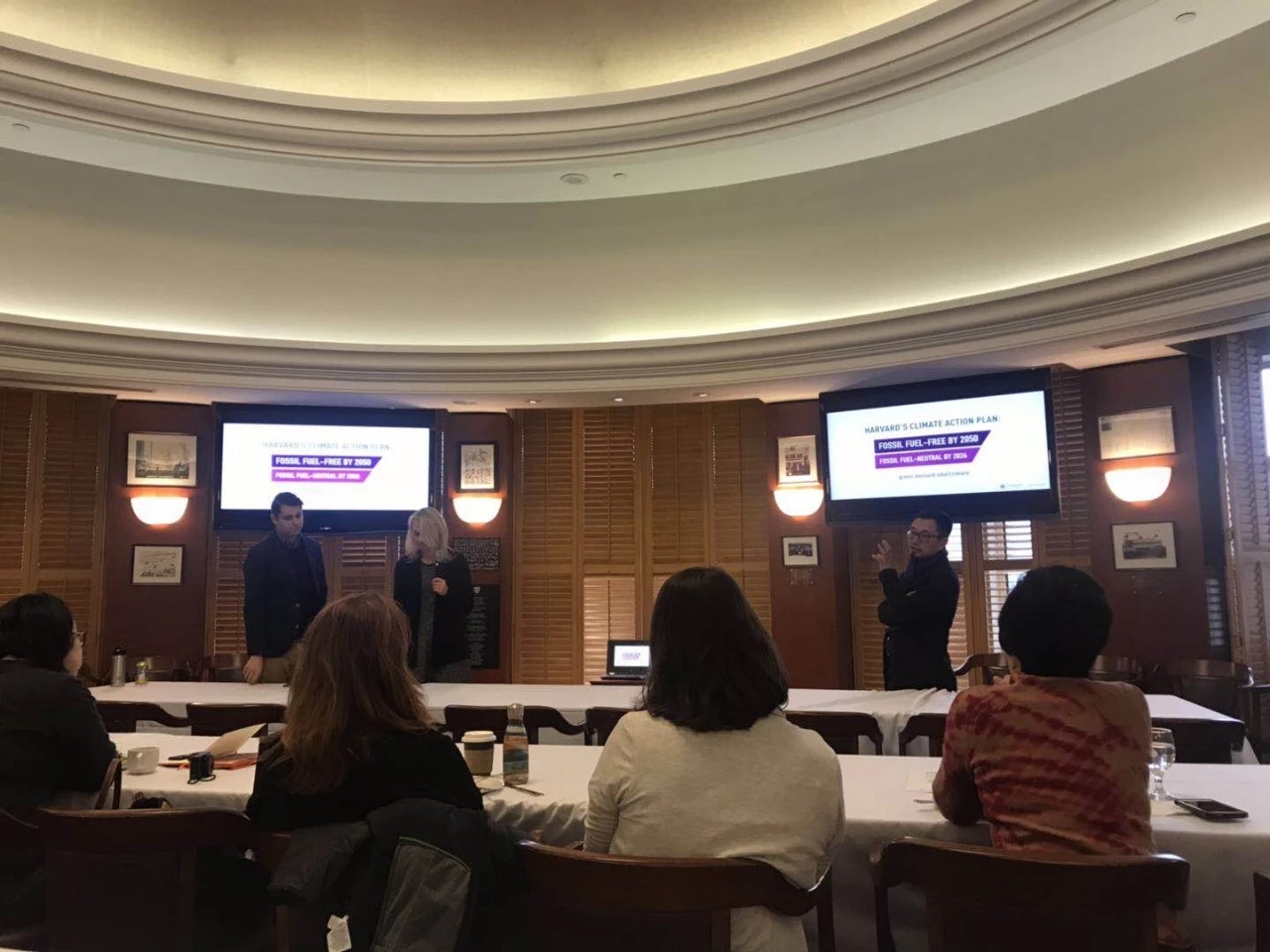
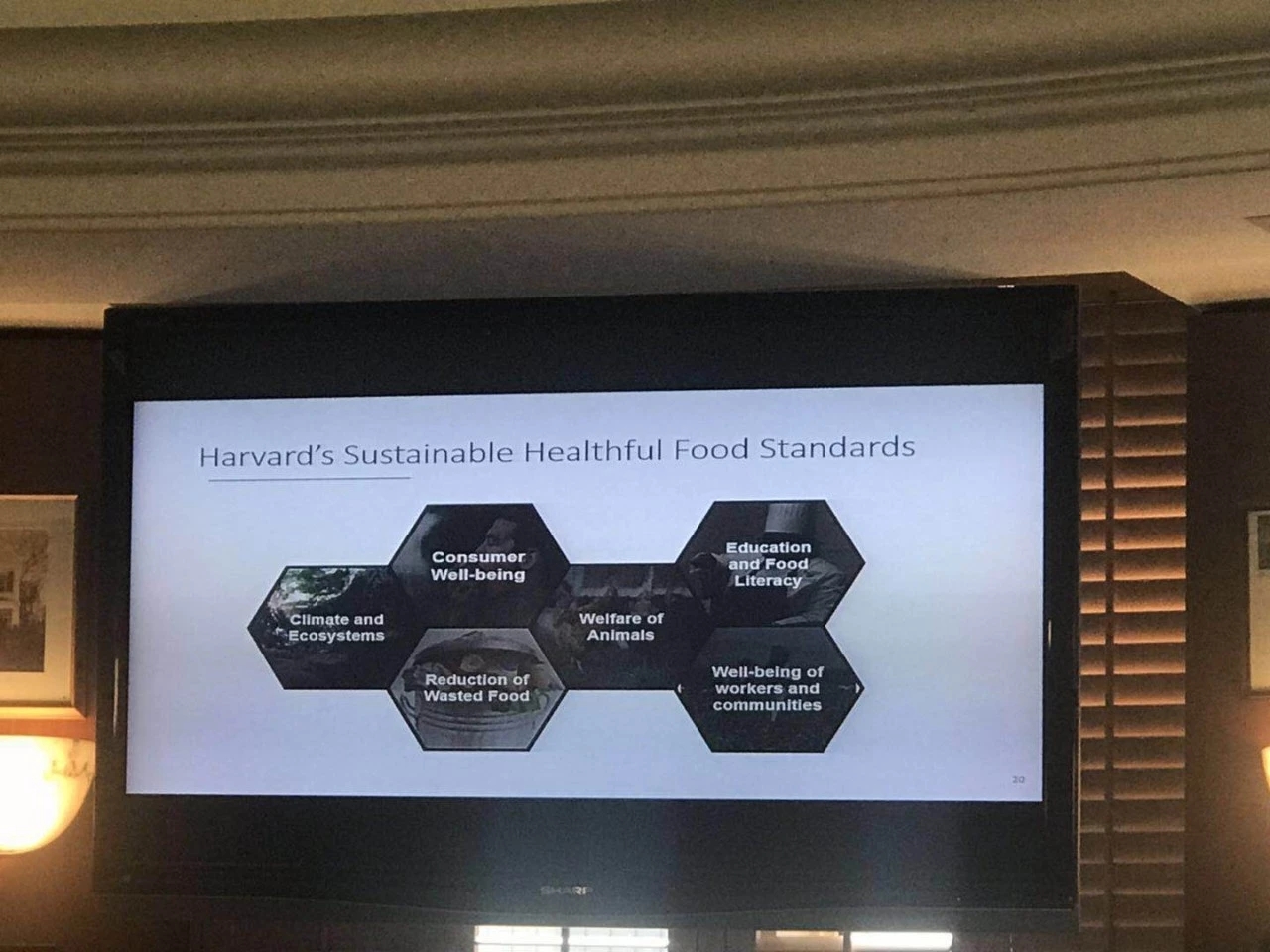
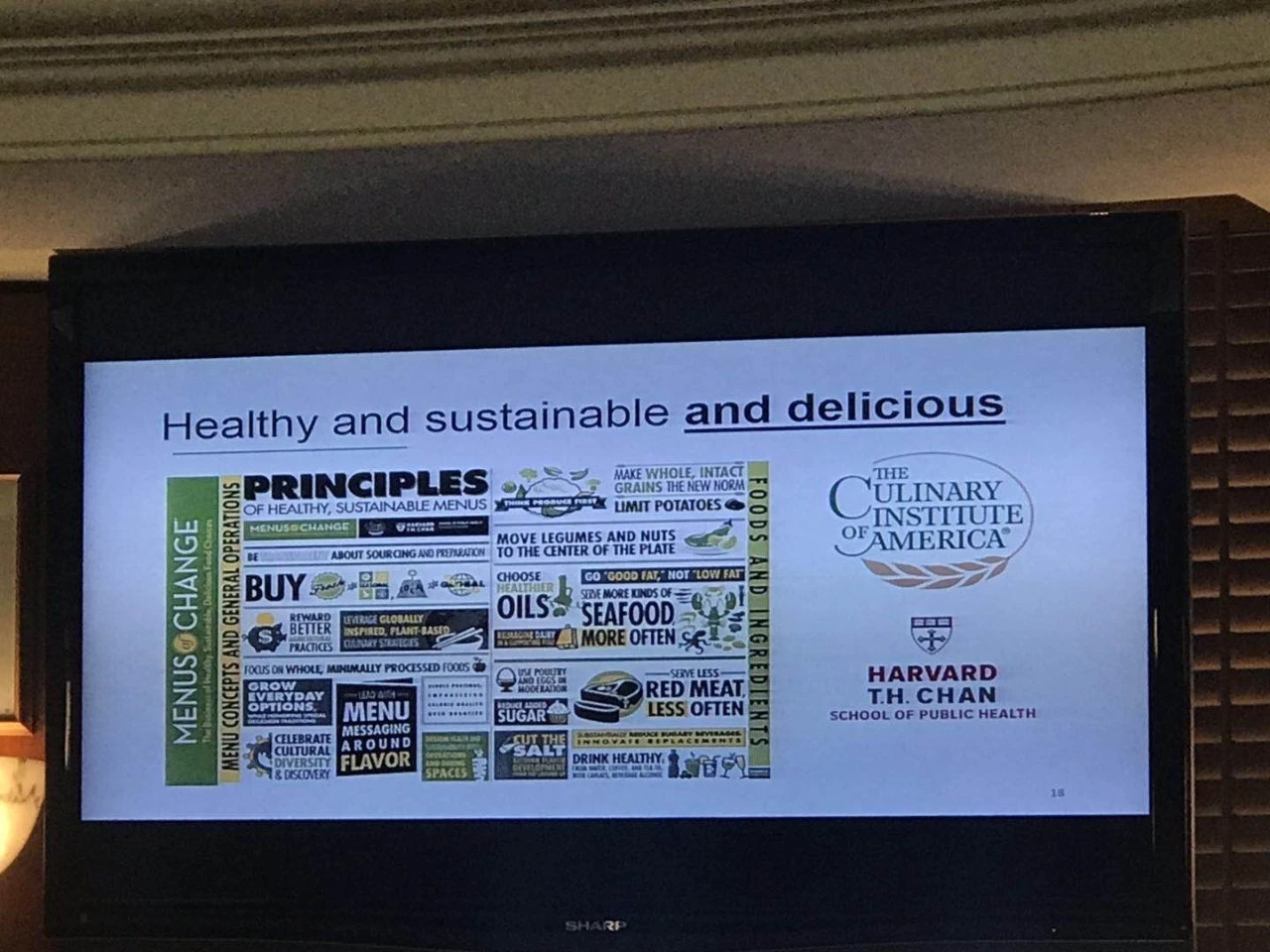
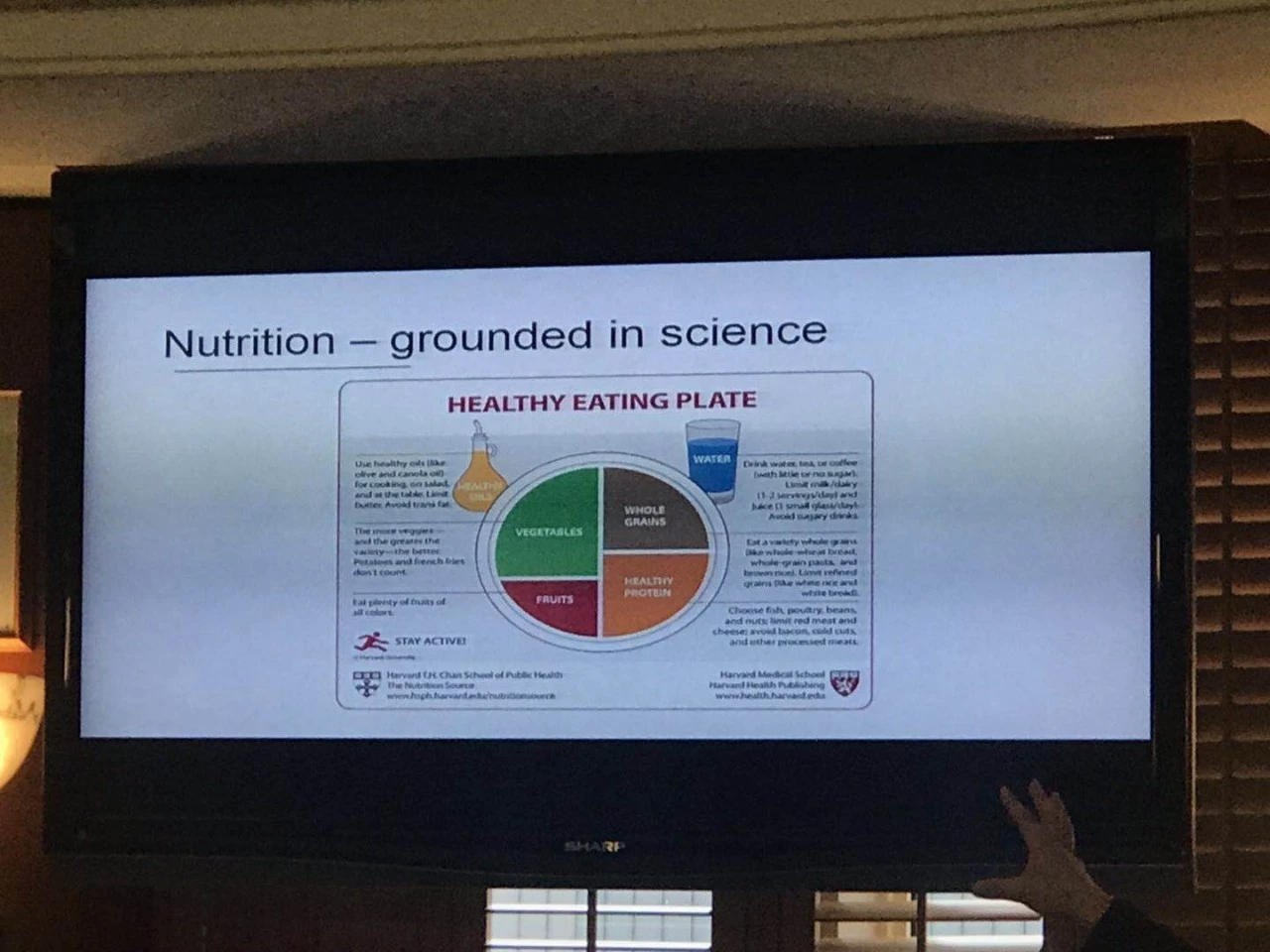
Note: Harvard Office of Sustainable Development Experience
The Good Food Delegation members asked how many Harvard students had participated in the promotion process in Harvard's sustainability field. The Harvard Office of Sustainability told us, "In Harvard, students actually proposed the earliest promotion of sustainable development". Since 2000, Harvard students have been concerned about climate change, then they called for action. The Office of Sustainability was formally established in 2008 after the principal noticed the students' appeal.
The manager of Harvard Dining also shared his experience. He said that college students have very little knowledge about food, probably because they are used to eating outside. Therefore, the school has taken some measures to change this situation:
1. Let students know where the food comes from, such as visiting the farm;
2. Teach students how to make a meal so that students can have real-life interaction with food;
3. Create a culture of food. The ultimate goal is to let food do good for each individual, good for human beings, and good for the planet as a whole.
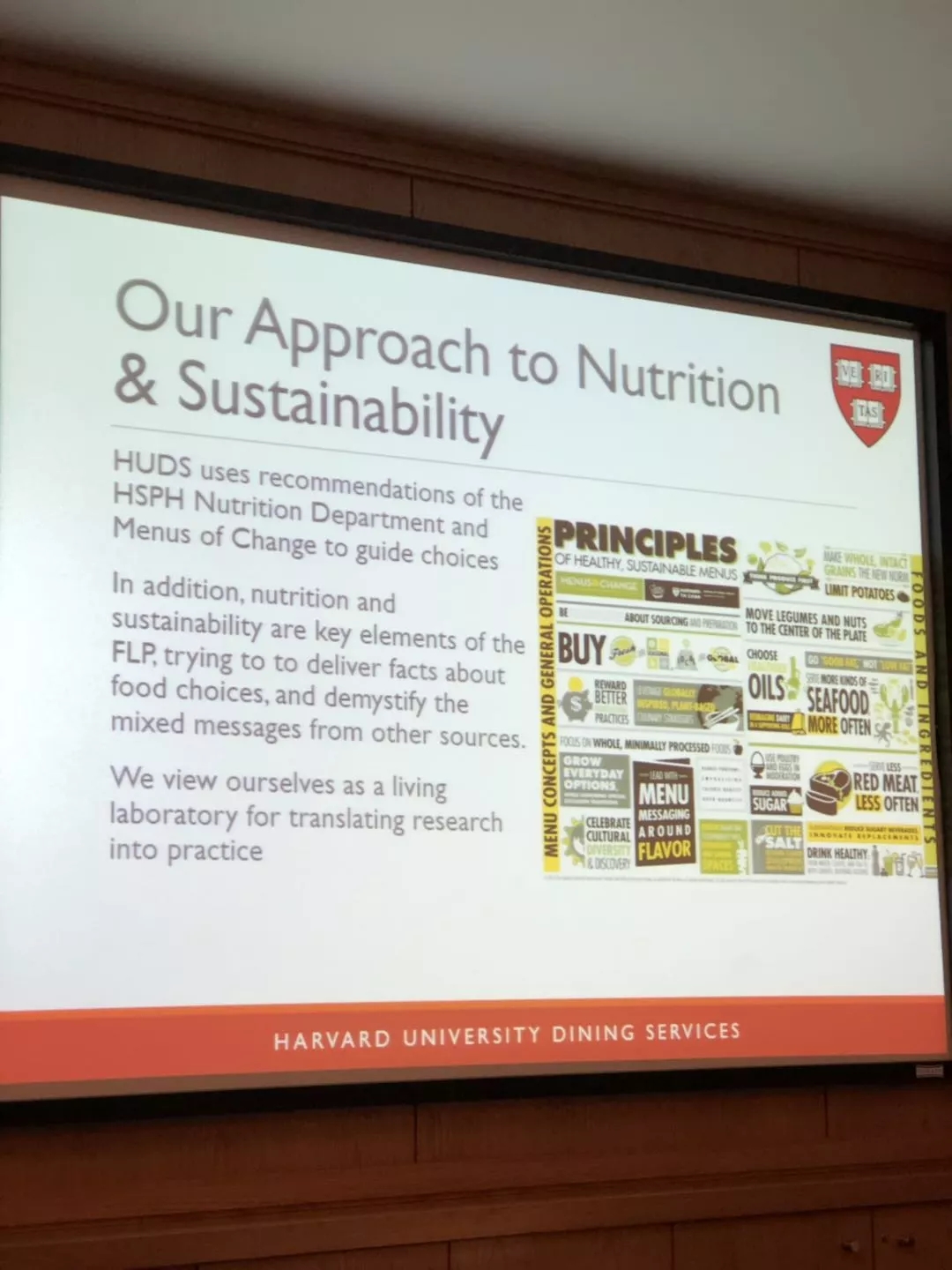
Note: Experience Sharing by Harvard Catering Department
The next day, members of the delegation other than Good Food Chef visited the Harvard Archives and read the historical archives of Harvard dining. We must say that the staff at the Harvard Archives is very professional. They immediately set out to find historical files related to food and China when they were informed of the Chinese Good Food Delegation's arrival. When we arrived, the staff has already prepared a dozen historical files in the room for us: the earliest documents of Harvard, the earliest hand-drawn drawings of the Harvard school badge, and some historical originals of Harvard catering, such as bills and tableware book, student feedback on food quality, etc. These records are so detailed that even a trivial thing like the hair found in coffee was recorded.

Note: Archives related to food and China
The principal purchased the porcelain plate in the picture above at the time from the UK. Once a student accidentally brought the plate back to the dorm to steal the dessert on the plate. One hundred years later, his descendant discovered it and sent it back to the school.
The staff humbly stated that by providing us with these services, they also had the opportunity to learn about food-related history. At the same time, they also thanked the Harvard Catering Department for meticulously storing the important documents of the past years and handing them over to them in time. Perhaps, this Chinese New Year Feast's relevant materials will also be collected into the Harvard file for future generations to refer to.
This visit allowed us to learn many interesting stories about food in Harvard history. It is hard to imagine that such a famous school that gave birth to many American presidents and Nobel scientists is a foodie.

The Harvard Food and Beverage Department introduced history to us.
It is said that the first president of Harvard was fired because the food he prepared for his students was awful. When Harvard University was founded, there were only about 20 students, so they all lived in the principal's house. The principal was dismissed because the school food was too bad. From this point of view, even in the world's top prestigious schools, food is vital. At present, 83% of food that Harvard dining provides is plant-based. Student restaurants are full of promotional posts that encourage plant-based protein to replace animal-based protein.
Another exciting thing about food:
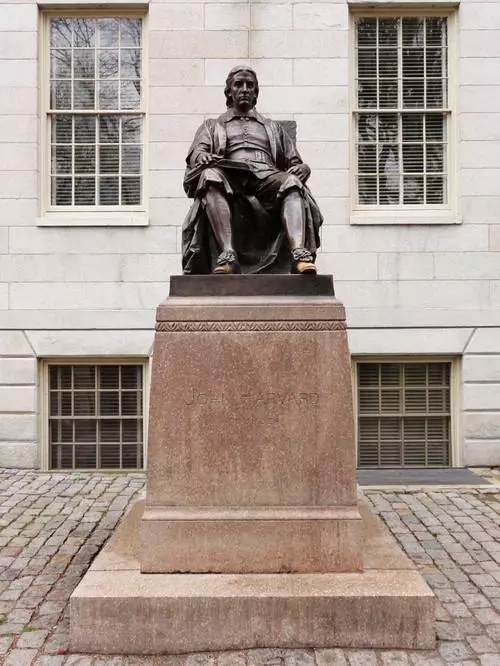
Note: Mr. Harvard Sculpture
The famous sculpture of Mr. John Harvard on the Harvard campus is well-known. It is the third most photographed in the United States (the first is the Statue of Liberty and the second is Lincoln at the Lincoln Memorial). Now his shoes are polished because of tourists' touch (it is regarded as good luck). The white house behind the sculpture is now the office building of the dean of Harvard College. It was initially a student dining hall, but students were kicked out of this building more than a hundred years because they were fighting with food (impolite and food wasting). Since then, it has become an office building.
It seems that Harvard has a lot of funny stories related to food in history!
While we were visiting the campus, seven Good Food chefs and colleagues from the Harvard Food and Beverage Department began to prepare for the New Year Feast for 1200 people (the largest one of this year's New Year Feast). Although Chinese and American chefs have language barriers, they share the same goal. "It shows that food has no borders. Food is the language of the world," said David Davidson, head of the Harvard Dining Department.
The New Year Feast was held at Harvard's Annenberg Hall that evening. The Annenberg Hall is as old and magnificent as the fictional Hogwarts School. Our gourmet Chef also presented the largest Chinese catering feast in the history of Harvard for more than 300 years. After the dinner, many students responded that the food was excellent, and even some students came to thank us and said (today is Friday), "It made my week". This was the most lavish praise of the Chinese chefs and traditional Chinese cuisine.
 Note: Our menu was hanging in the Annenberg Hall center, which well suited the dining hall.
Note: Our menu was hanging in the Annenberg Hall center, which well suited the dining hall.
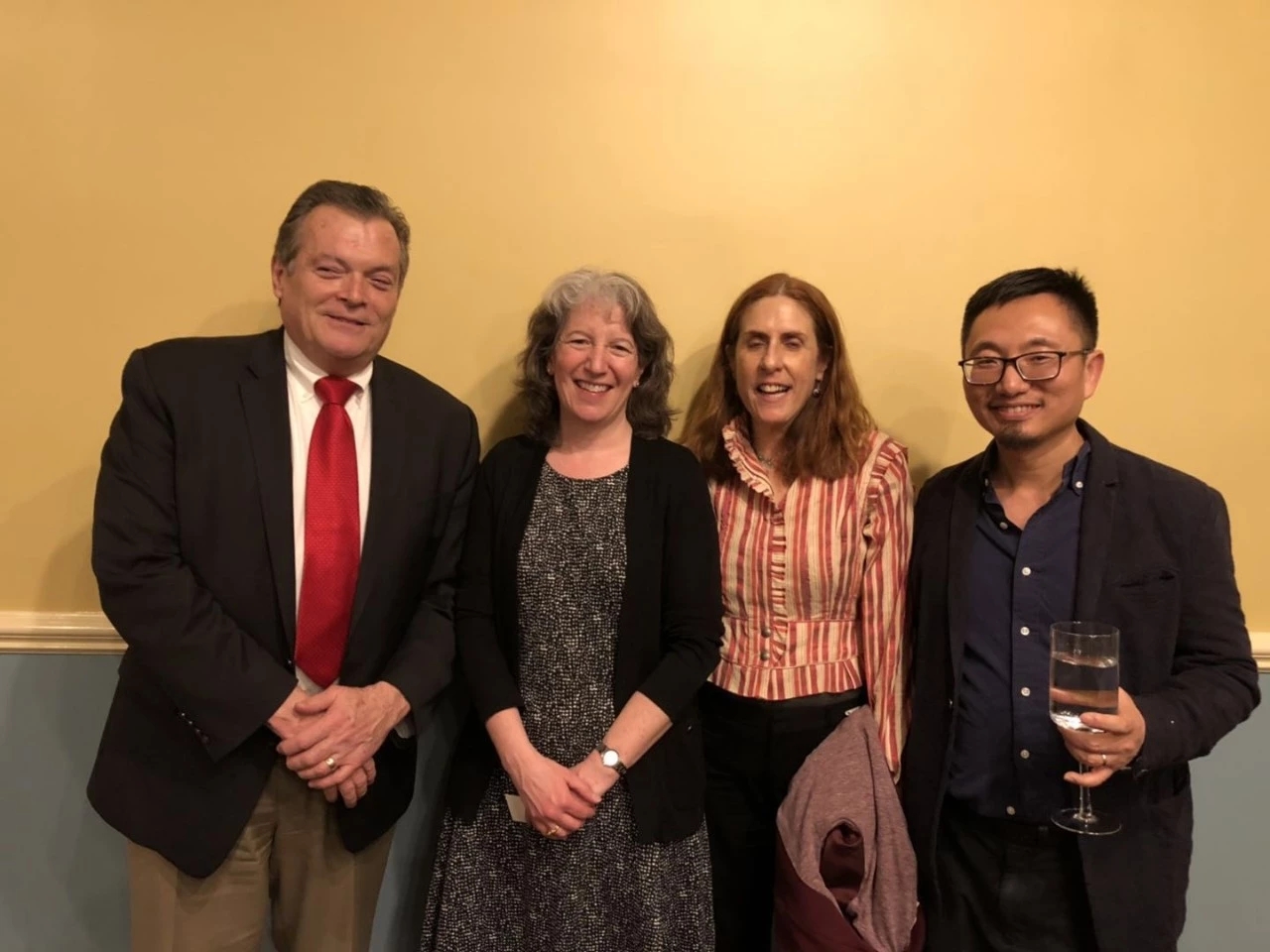
Note: Group photo with Vice President of Harvard and Director of Catering
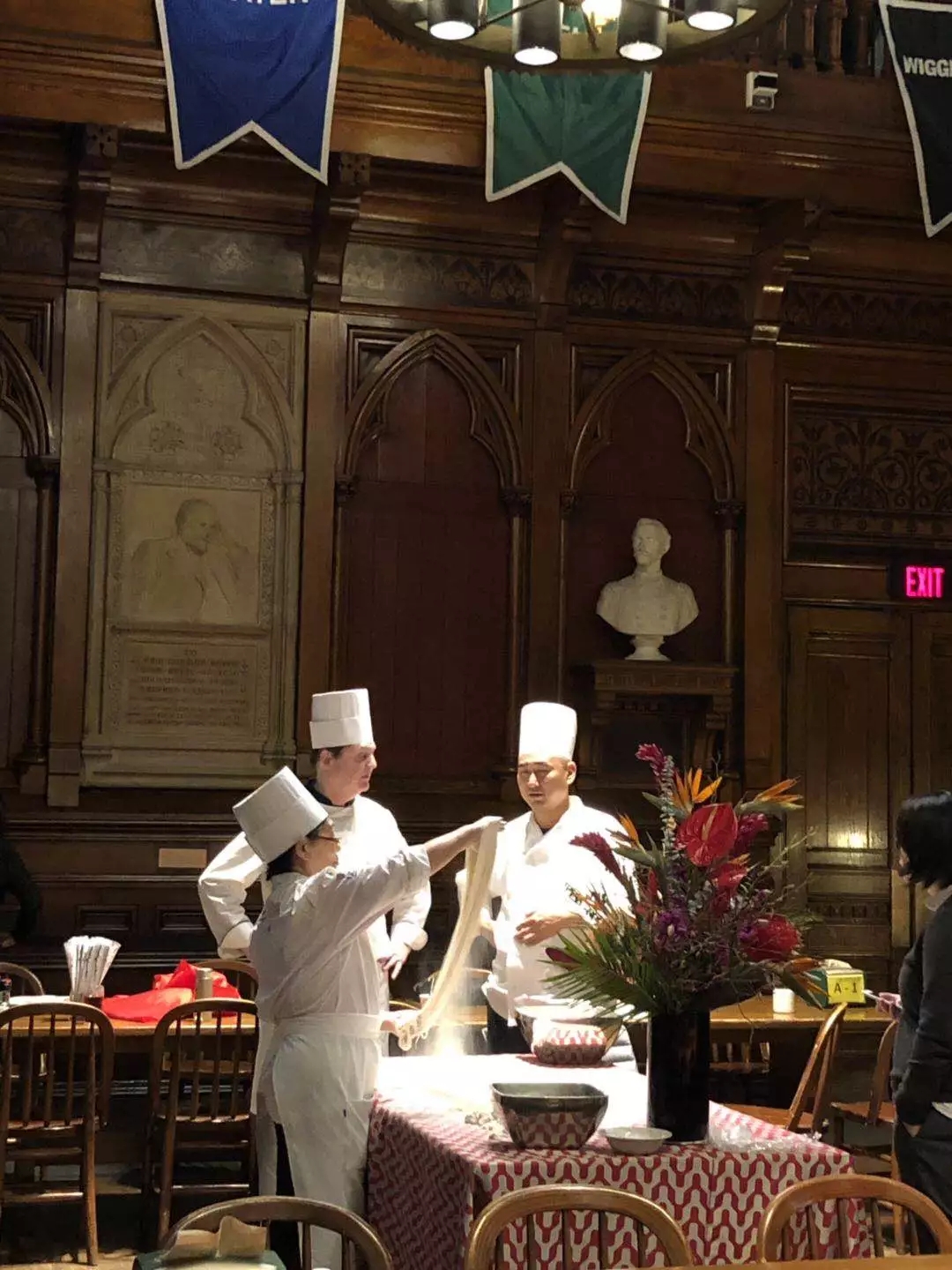
Note: Master Chef Li Qun, a Good Food Chef, is showing Hand-Pulled Noodles at Harvard.
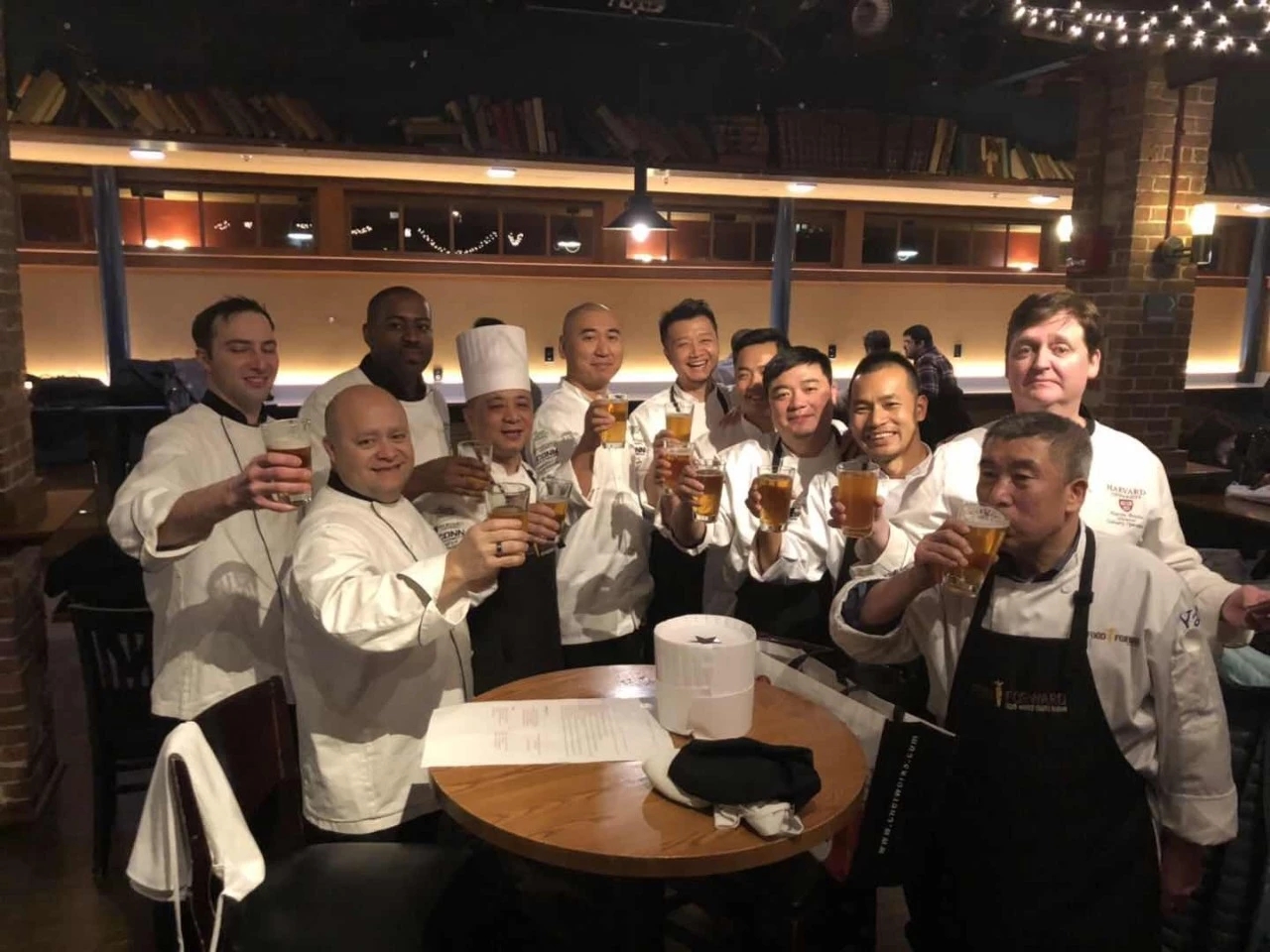
Note: Good Food chef and Harvard catering department's posters
Note Breakfast at Harvard: The artificial egg invested by Li Ka-shing. It tastes more like tofu.
Note: Harvard's earliest file with the first hand-painted Harvard school badge
Note: The top photo shows Harvard's first Chinese teacher, whose students are teachers who teach Latin
2019.2.8
Writer by Jian Yi